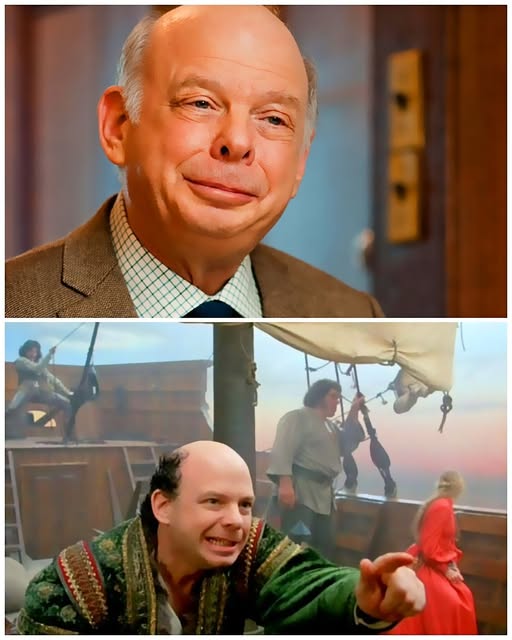
Continue to get up, show up, step up and do your best and sometimes luck will do the rest!
“I was convinced I would be fired at any moment. I had heard that Danny DeVito was the person they wanted, and I thought, how could I possibly compete with him? I spent every day on set thinking I was about to be sent home. That anxiety seeped into everything I did, and oddly enough, it gave Vizzini the manic edge that people now remember. It is one of life’s strangest ironies that my fear of being a failure is the very thing that made the character work.” Wallace Shawn’s words perfectly sum up his state of mind when stepping into the role of Vizzini in Rob Reiner’s 1987 fantasy adventure “The Princess Bride.”
The casting of Shawn was never straightforward. Rob Reiner had initially wanted DeVito for the part of the Sicilian criminal mastermind, a detail that haunted Shawn from the moment he arrived on set. The actor later shared that he would often lie awake in his hotel room, rehearsing lines and convincing himself that producers were already searching for a replacement. Every laugh he delivered carried the weight of his worry, yet that very nervousness translated into Vizzini’s frantic energy. The speed of his speech, the overconfident gestures, and the high-pitched exclamations all stemmed from his internal fear, which turned into comedic brilliance before the camera.
Shawn’s most famous contribution came in the form of a single word. His repeated cry of “Inconceivable!” has since become one of the most quoted lines in movie history. On screen, it was delivered with sharp conviction, yet in reality, it was fueled by the belief that he would not last another day on set. This duality gave Vizzini an authenticity that was both hilarious and oddly endearing. Reiner later praised Shawn for capturing exactly the kind of unpredictable humor the film needed, showing trust in an actor who had very little in himself at the time.
Andre the Giant, who played Fezzik, often recalled how Shawn’s nervous pacing before scenes added an extra layer of camaraderie on set. Cary Elwes wrote in his memoir about watching Shawn psych himself up, looking like a man preparing for his own dismissal, and then turning that raw tension into comedy gold. The cast admired how he never let his insecurity stop him from performing with full force, even if he was convinced he was doing poorly.
Reiner’s decision to keep Shawn was more than a practical choice; it was a recognition of how well the actor’s natural unease fit the character. Vizzini needed to be a man constantly straining for control, trying to appear brilliant while the world unraveled around him. Shawn’s interpretation captured that with precision. What he considered his weakness became the exact quality that made Vizzini unforgettable.
When asked years later about his time on “The Princess Bride,” Shawn spoke with gratitude, tinged with amusement at the irony. He explained that he had never imagined audiences would embrace a performance born out of pure self-doubt. For him, the greatest surprise was that his fear turned into laughter for millions of viewers. That laughter became part of the film’s enduring charm, proof that sometimes the most unlikely circumstances create the most lasting results.
Vizzini’s short time in the film cemented Shawn’s place in cinematic history. Although the character is defeated in the famous battle of wits, his presence lingers because of the unmatched delivery and the nervous spark that made him impossible to forget. Shawn’s own words remind us that insecurity can, at times, be transformed into art: “If you’re terrified enough, sometimes the fear itself does the work for you.”
The role that nearly slipped away instead became the performance of a lifetime, a playful reminder that even overwhelming anxiety can give birth to comedy that endures through generations.
Shawn’s terror, woven into every line, turned into pure delight for audiences, an outcome so perfectly improbable that even Vizzini might have called it inconceivable.
